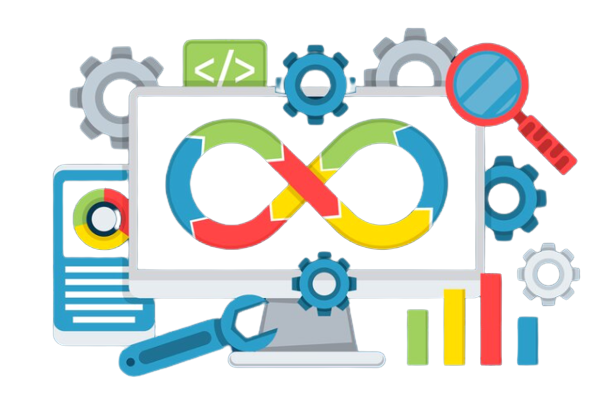Next-level DevOps tools are revolutionizing the way organizations collaborate and deploy software. With their advanced features and capabilities, these tools enable seamless collaboration, automate deployment processes, and drive efficiency and productivity.
In the fast-paced world of software development, DevOps has emerged as a game-changer, enabling organizations to achieve seamless collaboration and efficient deployment. DevOps tools are crucial in automating processes, accelerating release cycles, and enhancing collaboration among development, operations, and quality assurance teams. In this blog post, we will explore the benefits and capabilities of next-level DevOps tools that are revolutionizing the industry.
The Significance of Collaboration and Deployment in DevOps:
- Streamlined Processes: DevOps aims to bridge the gap between development and operations teams, ensuring smooth collaboration and continuous integration. Effective collaboration and deployment practices are vital for achieving faster time-to-market, improved product quality, and enhanced customer satisfaction.
- Automation and Efficiency: DevOps tools automate manual tasks, enabling teams to focus on innovation rather than repetitive activities. Efficient deployment practices ensure reliable releases and minimize downtime, leading to increased productivity and cost savings.
Introduction to Next-Level DevOps Tools:
- Definition and Functionality: Next-level DevOps tools are advanced software solutions designed to enhance collaboration and streamline deployment processes. These tools leverage automation, orchestration, and advanced analytics to optimize workflows and improve overall efficiency.

devops tools
- Key Features and Capabilities: Next-level DevOps tools offer a wide range of features, including version control, continuous integration/continuous delivery (CI/CD), infrastructure as code (IaC), automated testing, and monitoring. They empower teams with real-time visibility, collaboration, and feedback loops.
Benefits of Next-Level DevOps Tools:
- Improved Collaboration: These tools provide a centralized platform for teams to collaborate, share code, track changes, and resolve conflicts efficiently. Collaboration features such as code reviews, pull requests, and team chat foster effective communication and alignment.
- Enhanced Deployment Automation: Next-level DevOps tools automate the entire deployment process, from building and packaging code to provisioning infrastructure and deploying applications. This automation ensures consistency, eliminates manual errors, and enables rapid and reliable deployments.
- Scalability and Flexibility: These tools are designed to scale seamlessly as the organization grows. They support diverse environments, including on-premises, cloud, and hybrid, and offer flexibility to adapt to evolving business requirements.
Advanced Features and Functionalities:
- Continuous Integration and Continuous Delivery (CI/CD): It integrates code changes frequently, runs automated tests, and deploys them to production environments. This approach enables faster iterations, reduces risk, and facilitates rapid feedback.
- Infrastructure as Code (IaC): These tools embrace IaC principles, allowing infrastructure provisioning and configuration through code. Infrastructure changes can be version-controlled, tested, and deployed programmatically, resulting in consistent and reproducible environments.
- Advanced Analytics and Monitoring: It provides insightful analytics and real-time monitoring capabilities. Teams can track key performance indicators, identify bottlenecks, and proactively address issues, ensuring optimal performance and reliability.
Integration and Ecosystem:
- Integration with Existing Tools: It can integrate with a wide range of existing development, testing, and deployment tools, ensuring compatibility and enhancing the overall toolchain.
- Ecosystem and Marketplace: These tools often have a vibrant ecosystem and marketplace, offering a wide range of plugins, extensions, and integrations. This allows teams to customize their workflows and leverage specialized functionalities per their specific needs.
Best Practices for Implementing Next-Level DevOps Tools:
- Assess Organizational Needs: Before implementing a next-level DevOps tool, organizations should assess their unique needs, challenges, and goals. This evaluation will help in selecting the right tool that aligns with their requirements.
- Training and Skill Development: Providing team members with adequate training and skill development opportunities is crucial for successful tool adoption. Training programs should cover tool functionality, best practices, and advanced features to maximize the tool’s potential.
- Gradual Adoption and Iterative Improvements: Organizations should adopt a gradual and iterative approach when implementing next-level DevOps tools. This allows for smoother transitions, minimizes disruption, and enables continuous improvement based on feedback and lessons learned.
Conclusion
Next-level DevOps tools are revolutionizing the way organizations collaborate and deploy software, with Tanbits providing expert DevOps services. With their advanced features and capabilities, these tools enable seamless collaboration, automate deployment processes, and drive efficiency and productivity. By embracing next-level DevOps tools in 2023 and beyond, organizations can achieve faster time-to-market, improved product quality, and enhanced customer satisfaction, gaining a competitive edge in the dynamic world of software development.
BACK










